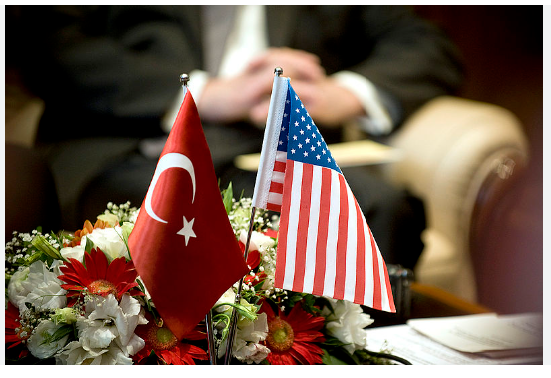Ankara’s approval of Sweden’s NATO accession and Washington’s green light for Türkiye’s F-16 package have put a deeply trouble bilateral relationship on a better course. From Washington’s perspective, these developments pave the way for a stabilization of relations at a time of multiple security challenges in multiple regions. The simultaneous deterioration of the strategic environment in Europe and the Middle East gives both Türkiye and the United States a strong stake in practical cooperation, even as significant differences persist.
Beyond the underlying American unease with domestic developments in Türkiye and persistent mistrust of the United States in Turkish public opinion, Washington and Ankara are hardly on the same page when it comes to key foreign policy questions. Türkiye has been unwilling to implement economic sanctions on Russia. Indeed, Turkish-Russian commercial ties have grown substantially over the course of the war in Ukraine. The Biden Administration may press Israel for greater restraint in its Gaza operations, but this is a far cry from Ankara’s open support for Hamas. These issues may yet complicate congressional approval for future defense-industrial cooperation with Türkiye. Some resolution of the question of Ankara’s purchase of S-400 missile systems from Russia is possible, and this would be a prerequisite for Türkiye’s return to the US F-35 fighter jet program. None of this will be easy to manage.
Security cooperation has always been at the core of US-Turkish relations. The economic and people-to-people aspects of the bilateral relationship are relatively weak, and the absence of diverse ties makes it even more important to put security cooperation on a firmer footing.
Türkiye needs reassurance and deterrence vis-à-vis Russian risks. Ankara may hedge in its political and economic relations with Moscow, but things can easily go wrong where Turkish and Russian forces come into contact in the Black Sea, Syria, Libya, or the Eastern Mediterranean. NATO Article 5 security guarantees are not automatic. Ultimately, they depend on political consensus within the alliance. Approval of Sweden’s accession certainly helps, but positive ties with Washington are essential.
Even with a war in the East, transatlantic partners will need to look south. It will be difficult to carry out essential tasks in the Mediterranean, not least counter-terrorism and maritime security, without unequivocal Turkish participation. The conflict in Gaza and the very real potential for escalation involving Iran and its proxies will put a premium on access and overflight for the substantial American naval and air presence in the region. Neither can be taken for granted.
Looking ahead, a fraught geopolitical environment is likely to bend the interests of the two countries toward more stable bilateral ties even as the values side of the relationship remains troubled.
Reprinted from article at German Marshall Fund website, link to source here
Follow our English language YouTube videos @ REAL TURKEY: https://www.youtube.com/channel/UCKpFJB4GFiNkhmpVZQ_d9Rg
And content at Twitter: @AtillaEng
Facebook: Real Turkey Channel: https://www.facebook.com/realturkeychannel/
